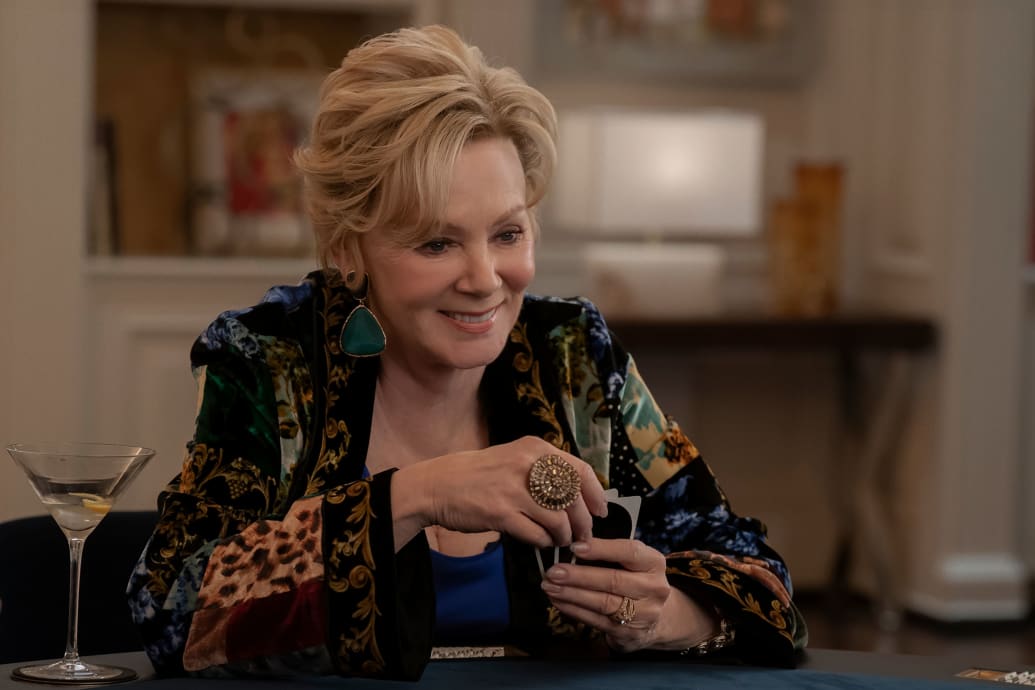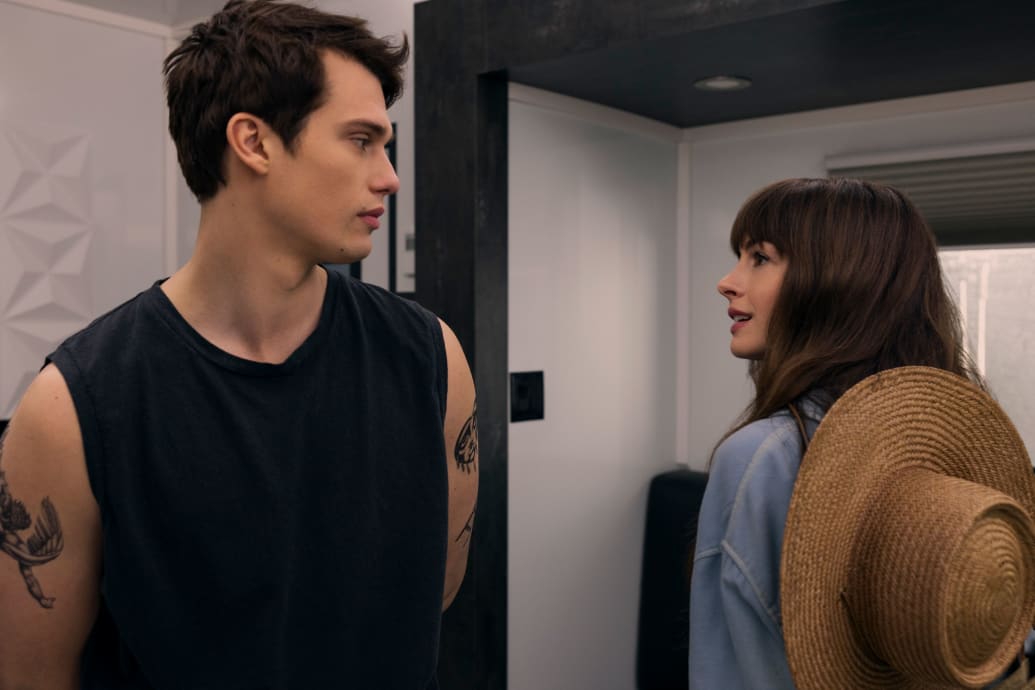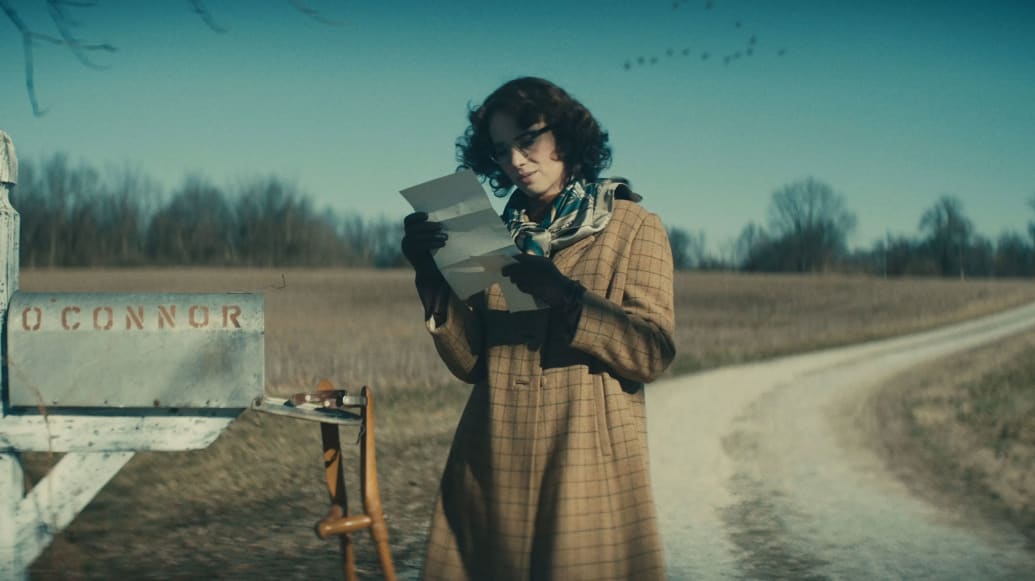There are roughly 47,000—oh, wait, a new Netflix Original just dropped; make that 47,001—TV shows and movies coming out each week. At Obsessed, we consider it our social duty to help you see the best and skip the rest.
We’ve already got a variety of in-depth, exclusive coverage on all of your streaming favorites and new releases, but sometimes what you’re looking for is a simple Do or Don’t. That’s why we created See/Skip, to tell you exactly what our writers think you should See and what you can Skip from the past week’s crowded entertainment landscape.
Skip: Unfrosted
Unfrosted, Jerry Seinfeld’s semi-fictionalized Pop-Tarts origin story, could’ve used more time in the toaster. The movie is an underbaked pastiche of ’60s nostalgia, with none of the edgy comedy Seinfeld has been bemoaning the loss of. The comedian isn’t just out of touch—he’s lost his.
Here’s Nick Schager’s take:
“No Pop-Tarts-related media will ever top the conclusion to last December’s Pop-Tarts Bowl, which ended with a human Pop-Tart mascot committing suicide by lowering himself into a giant on-field toaster (while holding a sign that said “Dreams Really Do Come True”) and then emerging out of a distant kitchen slot as a toasted edible treat that the winning Kansas State football team hungrily devoured. Corporate marketing at its most surreal, it deservedly became a late-2023 viral sensation, and highlighted the abject absurdity of this event’s every aspect. In the face of such a performance-art masterpiece, what hope was there for any competing breakfast-food entertainment?
Accepting that formidable challenge is Jerry Seinfeld, who directs, co-writes, and headlines Unfrosted, a new Netflix comedy, out May 3, about the creation of the famed morning snack. Boasting an enormous roster of funny men and women in a tale that’s fashioned in a 1960s Space Race mold, it’s an amusing trifle of a feature, generating more mild smiles than outright laughs. Superior to Seinfeld’s prior cinematic offering, 2007’s animated Bee Movie, it’s content to be childishly silly rather than legitimately weird, veering between gags concerning age-old products and Jan. 6 with a mildness that keeps things pleasantly pedestrian. There’s nothing particularly awful about it, but there’s also very little that’s memorable, save for an advertising-agency bit involving some choice cameos, the welcome participation of Hugh Grant, and a child performance that manages to one-up the film’s cavalcade of stars.”

Hilary Bronwyn Gayle/Max
See: Hacks Season 3
Hacks Season 3 proves its worth to any skeptics who might’ve been suspicious about the hit comedy returning after its story wrapped perfectly in Season 2. The show is bigger, punchier, and more inviting than ever, the ideal antidote to a comedy dearth.
Here’s Coleman Spilde’s take:
“In bad relationships, coffee shops that turn into wine bars after a certain hour, and television productions, there is one core rule to abide by: You’ve got to know when to get out. Too many TV shows that would be perfect as one-season wonders or two-season talents continue airing well past their primes. Business execs and producers are milking the teet of Big Streaming so dry that the nipple is about to fall off your Roku TV remote.
A third season of Big Little Lies is currently in the mix, despite Season 2 being irrefutable proof that a limited series almost never needs an extension. And then there’s Nine Perfect Strangers, which was so indescribably insipid that I can’t think of another reason to bring it back for its upcoming second season besides some kind of nefarious blackmail behind the scenes. (Why Nicole Kidman always seems to be at the scene of the television obsolescence crime when she could just stay making the best movies you’ve ever seen is a mystery to me.)
We’ve been so inundated with this more-more-more phenomenon (another season of Beef will be served hot soon enough) that, when a show can buck the trend of a feeble comeback, it’s a damn-near revelation. Such is the case for Hacks Season 3, which extends Max’s brilliant comedy past its second season’s clear-cut ending for a third installment that not only proves its worth, but runs laps around the show’s last batch of episodes—which themselves were already formidable examples of modern comedy writing.”

Alisha Wetherill/Amazon
See: The Idea of You
The Idea of You ably walks the line between silly and serious. It has to, given that it’s basically a Harry Styles fanfic. But the film transcends that concept thanks to a charming performance by Anne Hathaway that proves she’s one of our greatest assets.
Here’s Fletcher Peters’ take:
“Every moment of The Idea of You feels like the first day of summer vacation: dreamy, sun-soaked, and unbelievably horny, if you have an…adult taste in getaways. In watching the steamy new romance, we are living vicariously through someone who has achieved every teenage girl’s fantasy—sleeping with the world’s biggest, hottest celeb. In this case, the A-lister is Harry Styles at the peak of his One Direction fame—or at least, the lead love interest is loosely inspired by him. Swoon. That’s the ideal life.
Based on Robinne Lee’s spicy 2017 novel of the same name, The Idea of You (May 2, Prime Video) starts out with a sunny desert getaway in Coachella. Solène (Anne Hathaway), the 40-year-old mother of Izzy (Ella Rubin), is tasked with taking her teenage daughter and their friends to the music festival when she quite literally stumbles into the headlining act. Trying to find an open, clean restroom—quite the feat at Coachella—Solène accidentally finds herself in Hayes Campbell’s (Nicholas Galitzine) trailer. Oh. My. God.”

Oscilloscope
Skip: Wildcat
Wildcat, Ethan Hawke’s Flannery O’Connor biopic that stars his daughter, Maya, is lovingly made—to its detriment. The film is uncritical of its controversial subject and too dreamlike to hold viewers’ attention while it meanders toward any compelling ideas.
Here’s Emma Stefansky’s take:
“Wildcat, the Ethan Hawke-directed, Maya Hawke-starring Flannery O’Connor biopic, begins with a trailer for an entirely different movie, a black-and-white drama about ‘Star Drake,’ the alias of a character from O’Connor’s short story ‘The Comforts of Home.’ Star Drake was dubbed the town floozy who pays for everything with bad checks. The trailer feverishly describes the plot as ‘the outspoken story of an indiscreet woman,’ a phrase that could indeed describe a movie about the author herself. But the film that follows is muted, restrained, even dreamlike, a portrait of an artist that paints her life—controversial, complicated—according to her work.
Maya Hawke plays Flannery at the cusp of her battle with lupus, the disease that took her father’s life when she was a teenager, and that will claim her own at 39. The film follows along as her mother Regina (Laura Linney) transfers her from her short stay in New York amongst the literary luminaries of the time, back home to Georgia and the childhood farmhouse in which Flannery will spend the rest of her life. Hawke and Linney circle each other, as mothers and daughters with prickly relationships do. Regina has read her daughter’s stories but isn’t exactly a fan: ‘I don’t understand,’ she says mincingly. ‘Why you don’t want to write something that people would like to read?’”
Sign up for our See Skip newsletter here to find out which new shows and movies are worth watching, and which aren’t.
https://www.thedailybeast.com/rss
The Daily Beast
